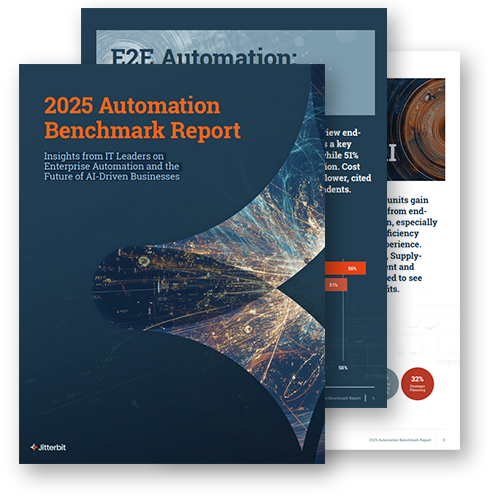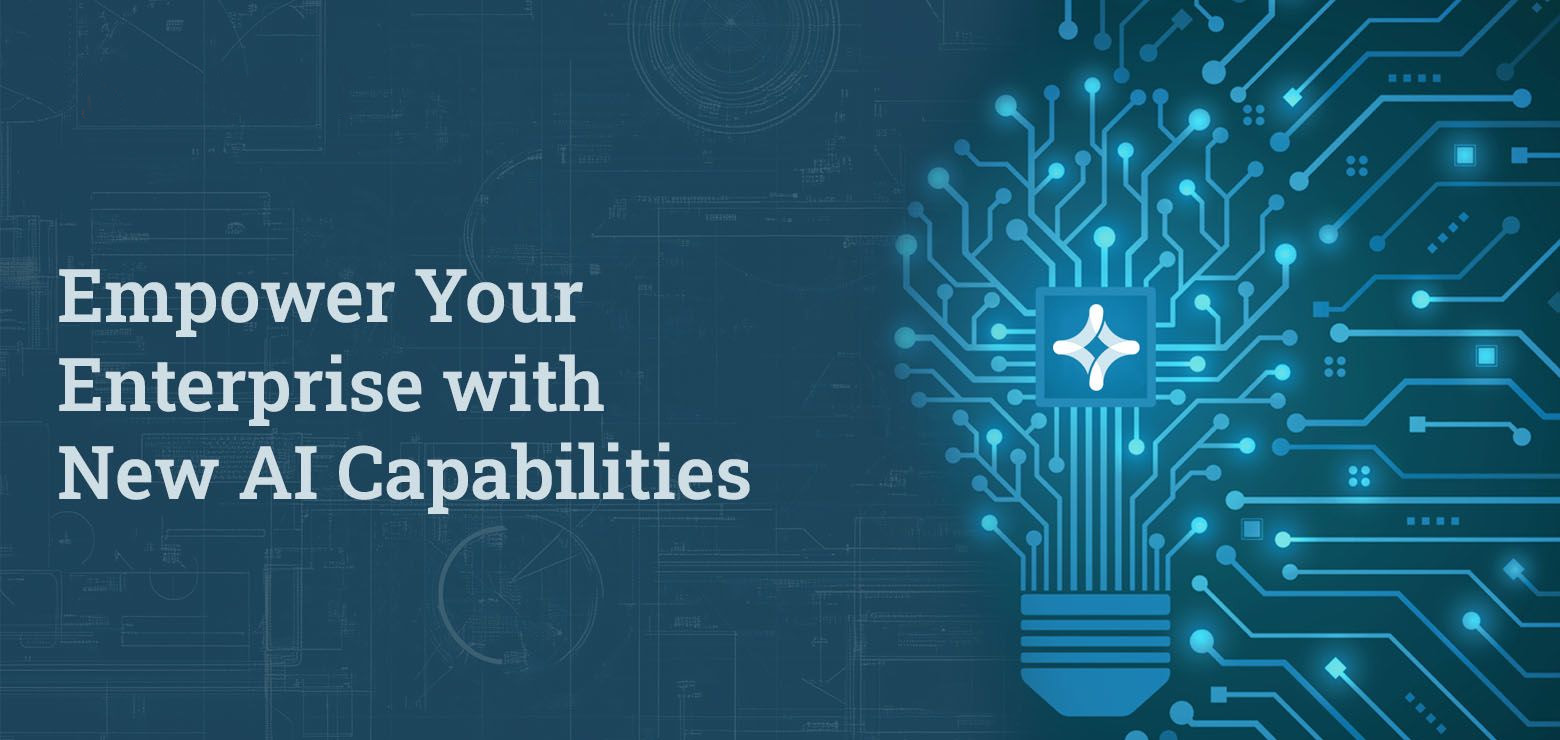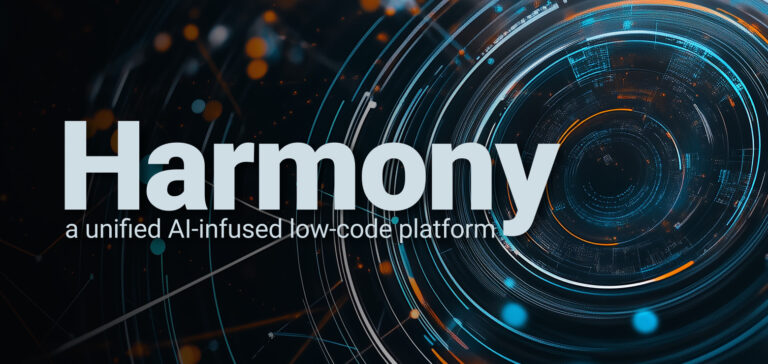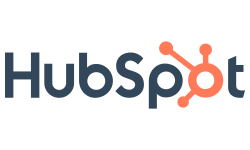Automation with AI accountability at its core.
With an advanced layered AI architecture, Jitterbit Harmony provides a modern approach to end-to-end automation.

Global industry leaders trust Jitterbit
Seamlessly integrate with thousands of applications
Connect your SaaS, on-premise and cloud applications in just days. Our drag-and-drop pre-built connectors make streamlining workflows and creating end-to-end process automation virtually effortless.
See Jitterbit iPaaS in action.
Schedule a Demo2025 Automation Benchmark Report:
Insights from IT Leaders on Enterprise Automation and the Future of AI-Driven Businesses
We surveyed over 1,000 IT leaders on enterprise automation and the future of AI-driven businesses. In our exclusive report, 2025 Automation Benchmark Report: Insights from IT Leaders on Enterprise Automation & the Future of AI-Driven Businesses, explore how IT leaders are overcoming resource constraints, tackling security challenges, and adopting AI for seamless automation.

Featured Resources

Jitterbit Unveils Layered AI Architecture, Adds Accountable AI Agents to AI-Infused Low-Code Harmony Platform

Gartner Report: How Generative AI is Impacting Integration Teams

Jitterbit Earns 20 G2 Spring 2025 Badges for Leadership in Enterprise Automation, Integration and App Development

Jitterbit’s Next AI Infusion: Build, Manage, Modify Business Applications with Natural Language Processing

Empowering Teams with AskJB AI: Smarter, Faster Digital Transformation

Jitterbit’s 2025 AI & Automation Predictions

Jitterbit Enables Streamlined Business Transformation Using AI to Build, Connect and Manage Applications, Automations






































